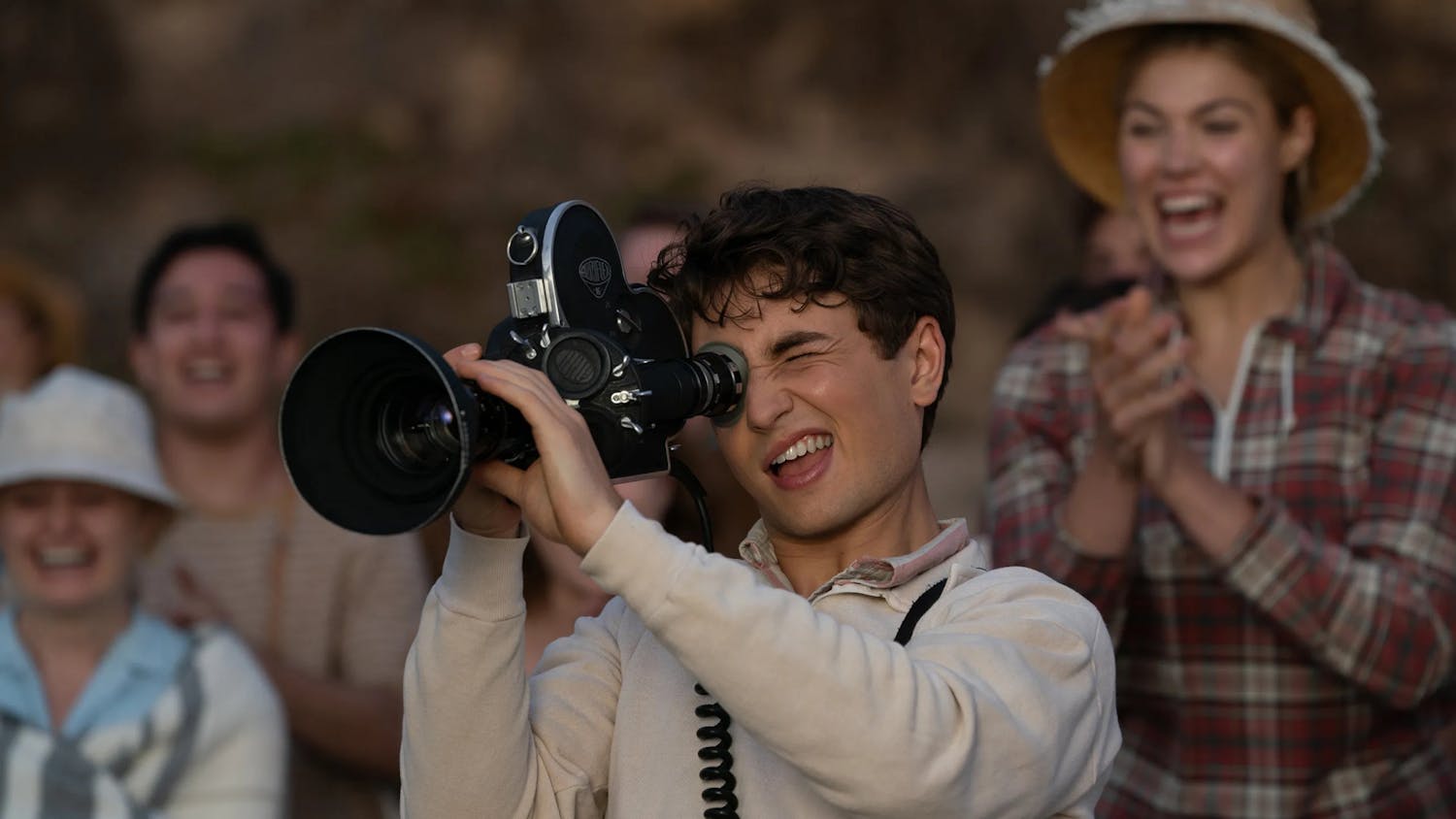Oh, how great this could have been. The director of “Out of the Furnace,” a grimy exposure of industrial and moral decay in poor Appalachia, and “Hostiles,” a modern classic of the American Western, reuniting with the leading man who fueled those films’ searing power. This time, it would be a story with alluringly high prospects to shock and move, one involving a grizzled, 19th-century New York City detective who recruits a certain poetically inclined West Point cadet to aid his investigation of a gruesome killing on the grounds of the military academy. But “The Pale Blue Eye,” an adaptation of the acclaimed 2003 novel of the same name and the third collaboration between writer-director Scott Cooper and Christian Bale, never fulfills the potential of its log line. Intensely frustrating because of the proven talent and tempting source material that bore it, the film is a lukewarm thriller that fails to grip as tightly as it should, only taking hold in a third act that raises the lingering suspicion that this tale is tauter than it initially lets on.
It is winter in upstate New York, 1830, and retired city constable Augustus Landor (Christian Bale) is living alone in a lodge on the mountainous outskirts of the newly formed United States Military Academy at West Point. A widower whose daughter has recently run off, Landor is visited one morning by Captain Hitchcock (Simon McBurney), a West Point administrator who requests that the reputable detective accompany him to the campus for an urgent inquiry. Landor obliges and arrives at the academy to learn that a cadet has been found hanged, and that after which the corpse was mutilated and robbed of its heart. He agrees to conduct an investigation into the morbid crime that quickly brings him into contact with an eccentric cadet from the South whose penchant for wordplay helps Landor decode a note recovered from the victim’s body. This cadet’s name is Edgar Allen Poe (Harry Melling), and as the investigation proceeds and further blood is spilled on West Point’s snow-laden grounds, the young poet becomes Landor’s closest confidant and fellow sleuth as the unlikely pair uncover dark secrets about the nascent military institution.
When “The Pale Blue Eye” was first announced in early 2021, the film’s most immediate appeal was its fusion of subject matter and setting. Cooper intended to bring Gothic atmospherics to bear on a 19th-century military school in the remote Hudson Highlands, an eerie pairing that would evoke Poe’s foundational works of horror and crime fiction. Marking the one unquestionable success of “The Pale Blue Eye,” Cooper fully delivers on this intention through his execution of the film’s visual character. The Victorian-era mystery unfolds amidst exteriors of snowy trails, icy streams and stone architecture, which are set in opposition to broodingly dark interiors lit only by the wick of a candle. A moment exemplary of Cooper and cinematographer Masanobu Takayanagi’s style comes when an unsettled Poe takes a night stroll down a foggy path in the woods, the filmmakers opting for a wide shot to highlight the feeble glow of Poe’s lantern in the enveloping darkness. Such an image is essential for conjuring the Gothic weightiness that Cooper strives to layer upon his audience.
The craftsmanship at work in the director’s latest offering, however, cannot fully compensate for the lack of narrative intensity that made his previous films with Bale so impactful. It’s difficult to pinpoint, but something about either Cooper’s script or direction prevents “The Pale Blue Eye” from eliciting the sense of real danger that the best movies in the procedural genre always do. These films, like David Fincher’s “Seven” or Denis Villeneuve’s “Prisoners,” totally immerse the audience in the often grisly stakes faced by the protagonist; with strained focus and persistent dread, we process each new piece of evidence alongside the detective in their pursuit to bring the perpetrator to justice. Cooper’s shot at this form of suspense filmmaking features a different kind of symmetry between the experiences of the audience and the detective, one that leaves us feeling as if we are removed from the investigation, observing it from afar rather than steeped in its intrigue. Why this detachment? Because in “The Pale Blue Eye,” the detective himself is detached, and therein lies the true mystery of Cooper’s film.
Landor accepts the West Point case seemingly too readily, and within eight minutes of the movie starting, he is already questioning witnesses. The pacing of the narrative feels off, but so too does Bale’s performance. The actor’s singularly commanding screen presence is subdued, almost as if he is trying to pass through the film unnoticed. That is, at least, until the investigation arrives at a too-tidy resolution, and Bale takes a quietly devastating step into the foreground as the truth about Landor himself is unveiled. The details of this revelation cannot be disclosed without stripping “The Pale Blue Eye” of its worth, but this much can be said: A second viewing is in order. Not only would a rewatch with knowledge of the ending raise new meaning from certain scenes and lines of dialogue, but it may even prove the film’s critical flaw — its distancing approach to the procedural plot — to be a sly conceit on the part of Cooper and Bale. What at first comes off as misguided direction and uninspired acting could likely play as an acute awareness of where the story is headed upon a second watch. Until then, though, “The Pale Blue Eye” will remain where it belongs based on a single viewing: in third place on the hopefully unfinished list of films from one of our most exciting actor-director duos.
Jack Torpey '24 (he/him) is an Arts and Culture Editor. He writes film reviews for the Reel Critic column.
Jack is studying English with a minor in Film and Media Culture. Outside The Campus, he works as a peer writing tutor at the Writing Center and is a member of the Middlebury Consulting Group.



